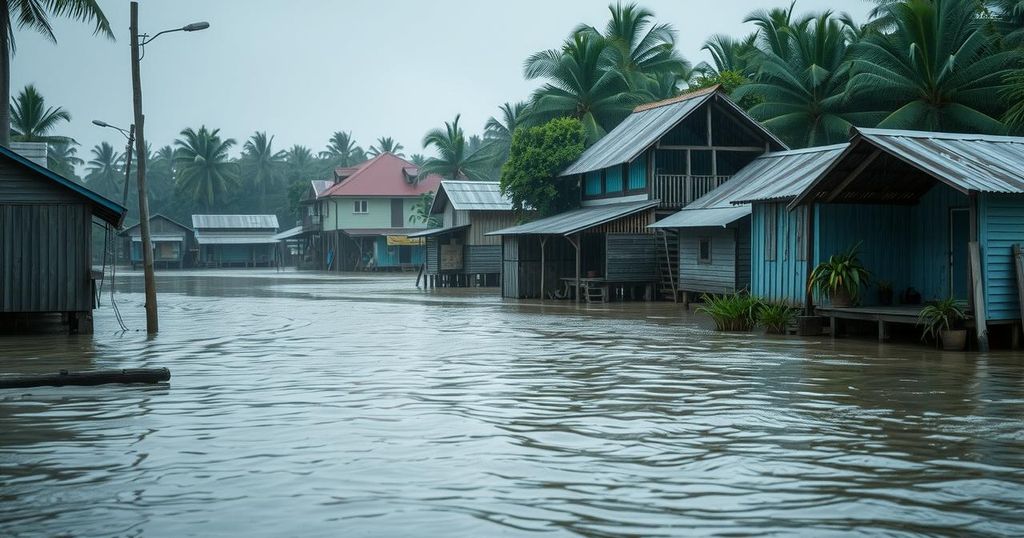Tropical Storm Sara has severely impacted Honduras, cutting off over 1,700 communities and affecting more than 110,000 people due to extensive flooding. The storm, which brought significant rainfall over four days, has resulted in one confirmed death, damaging thousands of homes and infrastructure. Experts link the intensity of such storms to climate change, highlighting urgent need for disaster preparedness.
Tropical Storm Sara has devastated Honduras, leading to significant flooding that has cut off access to over 1,700 communities. Originating in the Caribbean Sea, this slow-moving storm has been responsible for heavy rainfall over northern regions for four consecutive days, ultimately affecting over 110,000 individuals. Tragically, one fatality has been confirmed amidst widespread destruction, with more than 2,500 homes damaged and numerous highways rendered impassable due to landslides.
Authorities indicated that Sara is likely to weaken as it migrates into the southern Mexican state of Quintana Roo. Despite the turmoil, President Xiomara Castro proactively warned residents near rivers to seek alternative shelter, prompting thousands to evacuate ahead of the storm’s worst impacts. The storms are attributed to heightened sea surface temperatures, with experts noting an alarming link to human-induced climate change. As the 18th named storm this Atlantic hurricane season, Sara follows closely on the heels of Hurricane Rafael, which caused significant disruption in Cuba shortly before.
The severe impact of Tropical Storm Sara on Honduras is a poignant reminder of the increasing frequency and intensity of tropical storms, partly driven by climate change. This geographic region is particularly susceptible to heavy rainfall and flooding, which are exacerbated by rising sea temperatures. The storms pose significant threats to infrastructure and public safety, often overwhelming emergency services and necessitating emergency response efforts to safeguard the affected populations. Evaluating past storm patterns and their consequences provides critical insight into developing effective disaster preparedness strategies.
In summary, Tropical Storm Sara has caused extensive damage in Honduras, impacting thousands and illustrating the vulnerabilities inherent in the region’s geography and infrastructure. As climate change continues to influence storm patterns and intensity, there is a pressing need for comprehensive disaster management and mitigation plans to protect communities. Proactive measures, such as early warnings and evacuation protocols, are vital in reducing the impact of such natural disasters on human life and property. The situation remains dynamic, with continued monitoring of the storm’s trajectory and its anticipated weakening as it moves into Mexico.
Original Source: www.bbc.co.uk







